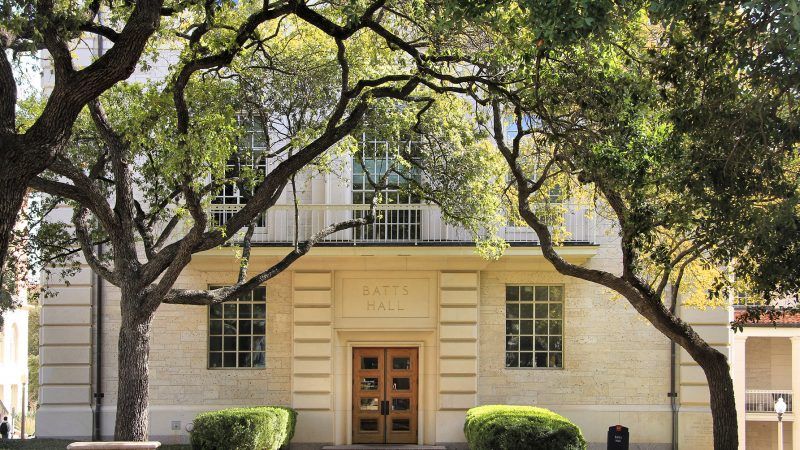Citing Safety, Some Students Oppose Removal of UT-Austin's 'Free Speech Zone'
They worry that letting speech flourish in the rest of the campus will make "students feel unsafe and unwelcome."

Texas has passed a law telling public universities to let people express their First Amendment rights in any public outdoor spaces. As a result, the University of Texas at Austin has ended its policy of limiting certain sorts of speech to a designated "free speech zone."
University President Gregory Fenves seemed happy with the new policy, telling The Daily Texan that "Our campus is a hub for people to gather and share different perspectives and experiences. This freedom is a constitutional right that has always been the foundation upon which students learn and faculty members teach and conduct research."
It does indeed violate the First Amendment when public universities treat specific areas as "free speech zones" and try to restrict controversial speech in other spaces. The entire campus should be a free speech zone.
But not all students are pleased with the change in policy, The Daily Texan notes:
"What (some organizations) are currently doing is making students feel unsafe and unwelcome," [University Democrats president Joe] Cascino, said. "I believe that universities should be able to step in and keep people like (Richard) Spencer or useless incendiary protests like (Young Conservatives of Texas') or Turning Point's from happening."
In other words, the head of one of the campus's most important progressive organizations believes that his equivalents on the right—the Young Conservatives and Turning Point USA—should be denied their right to speak. And that his justification for this is emotional safety. This precise threat to free speech is the main theme of my new book, Panic Attack: Young Radicals in the Age of Trump.


Show Comments (55)